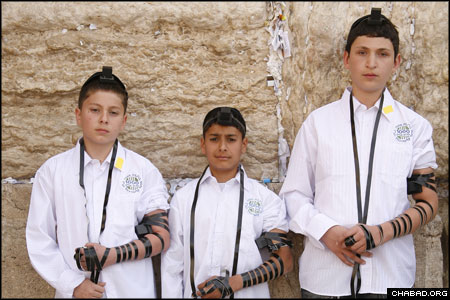Children

Advertisement for Sale of Newly Arrived Africans
This image is of an advertisement for a nearly equal number of adults and children from Sierra Leone at a Charleston Auction.

African American Women Writers of the 19th Century
Students might examine how the inclusion of African American women's perspectives alters more standardized narratives of American history.
Salem Witch Trials Documentary Archive
This archive houses a fantastic collection of source materials pertaining to the 160 women and men accused of witchcraft in the late 17th century in the Massachusetts Bay colony.
Jewish Women's Archive
The Jewish Women’s Archive (JWA), a national non-profit organization, seeks to collect and promote the 'extraordinary stories of Jewish women.'
Canadian Women's History
There is also a great deal of material on the foundation of female education and on the women’s suffrage movement.
Bar Miztvah
The three boys in the photograph belong to a group of Israeli boys who came together at the Western Wall in Jerusalem in 2008 for a mass bar mitzvah celebration. The orthodox social service organization Colel Chabad arranged the celebration for orphans and needy families.
Laws and Regulations Respecting Slaves at the Colony the Cape of Good Hope
Although marriage was not forbidden between Europeans and slaves or other non-Europeans, it was quite rare and entailed a drop in social status for the European. Nevertheless, sexual relationships occurred—sometimes coerced, sometimes by mutual agreement.
Slave Women and Children
Although marriage was not forbidden between Europeans and slaves or other non-Europeans, it was quite rare and entailed a drop in social status for the European. Nevertheless, sexual relationships occurred—sometimes coerced, sometimes by mutual agreement.
Meng Ch'iu, Empress Ma in coarse-woven silk
"Meng Ch'iu" translates as "Beginner's Guide." This text by Li Han, who lived during the early Tang Dynasty (618-907), presented the stories of famous figures in China's history and legendary tales.
Meng Ch'iu, K'uang Heng bores a hole in the wall Sun Ching shuts his door
"Meng Ch'iu" translates as "Beginner's Guide." This text by Li Han, who lived during the early Tang Dynasty (618-907), presented the stories of famous figures in China's history and legendary tales.